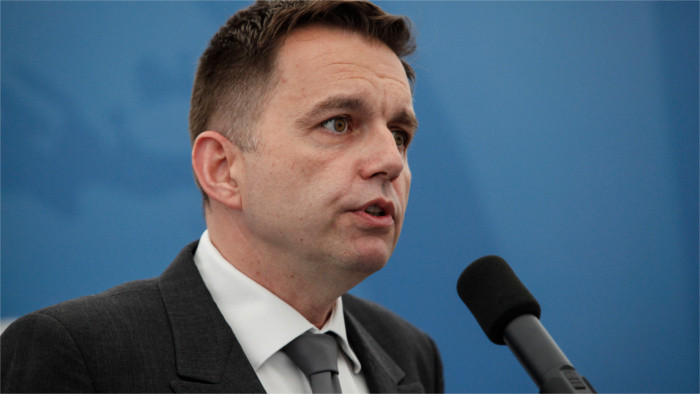A decrease in Slovakia's public finance deficit and state debt forecast for next year could be attributed to certain steps made by the European Central Bank (ECB) along with higher tax revenue, claim analysts in reaction to the recently issued budget outline. "The new public administration budget proposal is realistic. It emerges from better macroeconomic and other associated predictions," said Slovenská Sporiteľňa analyst Katarína Muchová. CSOB bank analyst Marek Gabriš praised the Government for committing to curb the deficit even in 2016. He went on to say that the Cabinet could see its goals met also thanks to the expected economic growth. Nevertheless, Gabriš said that the Government's plans as regards to reducing the deficit could have been more ambitious. This was echoed by Tatra Banka analyst Boris Fojtík, who criticised the Government for postponing its plan to achieve a balanced budget by 2018, instead of the initially sponsored 2017. Furthermore, the analysts concurred that the Government is rather slow in reducing the debt, which should fall below 50% of GDP by 2018. This could be ascribed to the policies of the European Central Bank, which has launched quantitative easing and the fact that interest rates are at a record low level. The analysts went on to say that a potential danger for the Government's budgetary targets could be due to unfavourable developments in the Eurozone. "Among the risks of the proposed budget are mainly macroeconomic factors, namely the on-going geopolitical tension between Russia and Ukraine, and the growth of Slovakia's main business partners. In addition, a potential danger lies in potential corrections in EU funds," concluded Slovenská Sporiteľňa analyst Katarína Muchová.
Analysts: Slovakia’s debt and deficit to fall next year
27. 07. 2015 14:33 | Topical Issue

Next year, the general government deficit should be at 1.93 percent of GDP, based on the general government budget draft for the years 2016-2018, published by the Finance Ministry. The department also expects to reduce the deficit in the coming years. "These objectives should contribute to a reduction of government debt in each year of the budgeting period, which also takes into account the requirements instituted in the constitutional law on fiscal responsibility," the ministry said. This year, debt reduction is expected to 53 percent of GDP.
Katarína Richterová Foto: TASR

